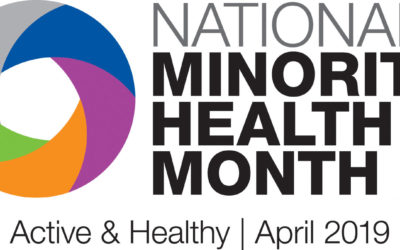
MARCH IS WOMEN’S HISTORY MONTH
This March, join The Black Women’s Agenda, Inc. as we celebrate Women’s History Month. Congress first declared March as Women’s History month in 1987. Since then, every year there’s a Presidential Proclamation to announce the month and to honor women who have made a notable impact in history.
According to the National Women’s History Alliance, “In February 1980, President Carter issued the first Presidential Proclamation declaring the Week of March 8th 1980 as National Women’s History Week. In the same year, Representative Barbara Mikulski, who at the time was in the House of Representatives, and Senator Orrin Hatch co-sponsored a Congressional Resolution for National Women’s History Week 1981. This co-sponsorship demonstrated the wide-ranging political support for recognizing, honoring, and celebrating the achievements of American women.
As word spread rapidly across the nation, state departments of education encouraged celebrations of National Women’s History Week as an effective means to achieving equity goals within classrooms. Maryland, Pennsylvania, New York, Oregon, Alaska, and other states developed and distributed curriculum materials for all of their public schools. Organizations sponsored essay contests and other special programs in their local areas. Within a few years, thousands of schools and communities were celebrating National Women’s History Week, supported and encouraged by resolutions from governors, city councils, school boards, and the U.S. Congress.
Each year, the dates of National Women’s History Week, (the week of March 8th) changed and every year a new lobbying effort was needed. Yearly, a national effort that included thousands of individuals and hundreds of educational and women’s organizations was spearheaded by the National Women’s History Alliance.
By 1986, 14 states had already declared March as Women’s History Month. This momentum and state-by-state action was used as the rational to lobby Congress to declare the entire month of March 1987 as National Women’s History Month. In 1987, Congress declared March as National Women’s History Month in perpetuity. A special Presidential Proclamation is issued every year which honors the extraordinary achievements of American women.” For more information https://nationalwomenshistoryalliance.org/womens-history-month/womens-history-month-history/
OTHER NEWS
April Is National Minority Health Month
This April, join The Black Women’s Agenda, Inc. in celebrating National Minority Health Month. This year, the U.S. Department of Health and Human Services Office of Minority Health (OMH) will join partners in raising awareness about the important role an active lifestyle plays in keeping us healthy. Their theme for the 2019 observance is Active & Healthy, which will “allow OMH and minority health advocates throughout the nation to emphasize the health benefits of incorporating even small amounts of moderate-to-vigorous physical activity into our schedules.
Black Women Focus on Aging Mastery
The Black Women’s Agenda recently hosted a summit themed, “I Am the Change: Living Your Best Life at Every Age,” at Morgan State University in Baltimore, MD. Sponsored by AARP and featuring leading experts in the fields of health, education, and economic security, the event focused on the importance of health and wellness in the aging process.
“Too often black women are focused on everyone and everything except themselves,” said panel moderator Dr. Rockeymoore Cummings. “Our concern for and work on behalf of our families and communities competes with our ability to implement self-care strategies that support our physical, emotional, spiritual, and socioeconomic wellbeing.”
FEBRUARY IS AMERICAN HEART MONTH
This year, as our hearts fill with pride while we celebrate Black History Month, let us also remember to focus on our heart health. And not just on Valentines Day – the entire month of February is American Heart Month.
Heart disease is the leading cause of death for men and women in the United States and certain minority groups face a greater risk than others. Deaths from heart disease are higher in Black Americans than in White Americans and other ethnic groups, and heart disease develops at a younger age in African Americans.
But, heart disease can often be prevented when people know their risks, make healthy choices and manage their medical conditions. So this month, learn the signs and symptoms and the steps you can take to make a difference in your life and the lives of your loved ones at https://www.goredforwomen.org
© 2025 The Black Women’s Agenda, Inc. All Rights Reserved. Privacy Policy








